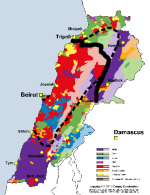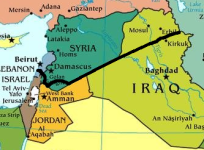Ricardolindo
Well-known member
- Location
- Portugal
Let's say that either Lebanon is never expanded or it's partitioned in the 1940s. Either way, it's limited to the former Mount Lebanon Mutasarrifate and Beirut with the rest of the territory in Syria. Such a Lebanon would have remained majority Christian forever. Such a Lebanon would have been more Francophile and pro-Western than the other Middle Eastern countries. It would also likely have recognized Israel at some point. What effects does this have on the Middle East?



